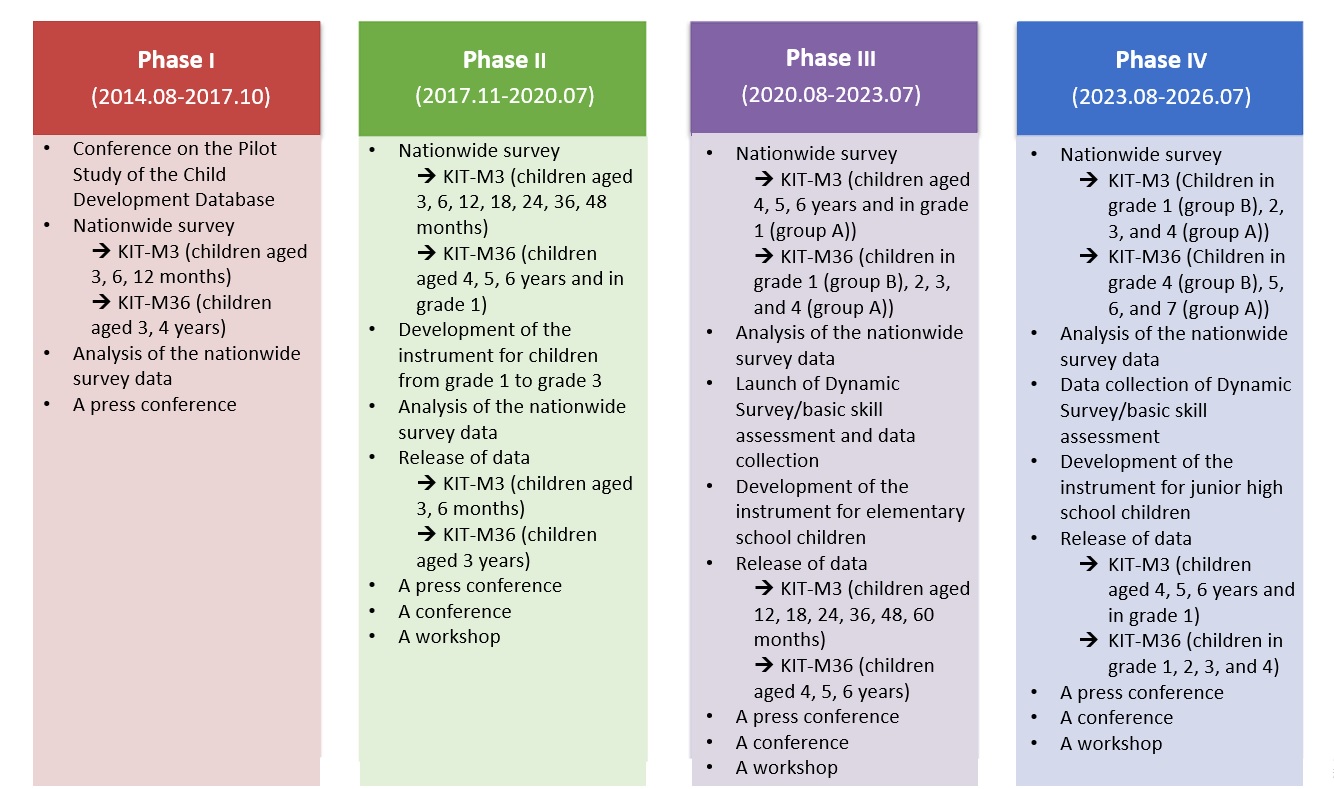Formal research
The KIT project is a longitudinal study of children in Taiwan that follows their development from birth. Two cohorts of children participated at the start of Phase I (2014-2017): (1) 3-month-old infant cohort (or KIT-M3): children aged 3 months, 6 months, or 12 months; (2) 36-month-old child cohort (or KIT-M36): children aged 3 or 4 years. In addition to face-to-face individual test and observation, measures were taken on many facets of their development, such as health, cognition, language, as well as social-emotional development, physical/motor development, and family/child care experiences.
In Phase II (2017-2020), the project kept collecting the data of the study children. Also, the research team self-developed an instrument exclusively for children from first grade to third grade to evaluate their development, family/school environments, and family/school experiences. Data collection continues in Phase III (2020-2023) and Phase IV (2023-2026). Meanwhile, an instrument to measure child development from grade four to six and from grade seven to nine will be developed, too. Each wave of data of the two cohorts (KIT-M3 and KIT-36M), upon its completion, will be available on the SRDA (Survey Research Data Archive) website, Academia Sinica.

